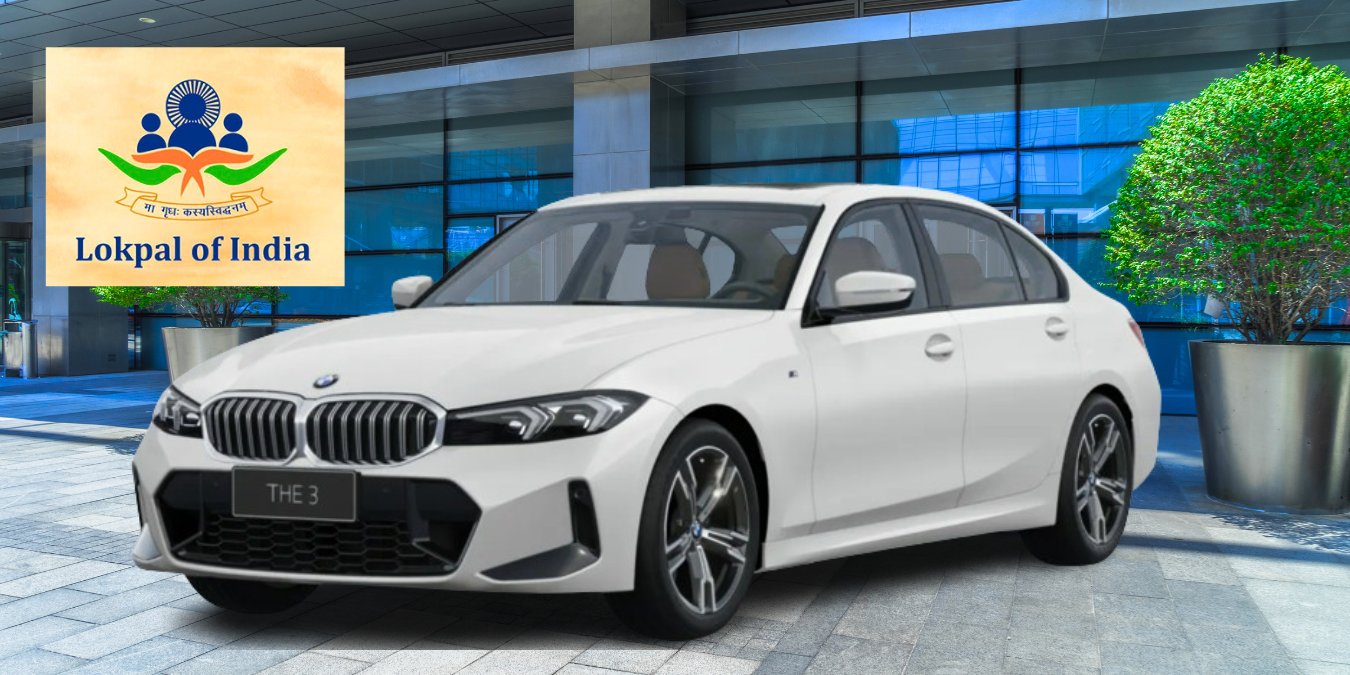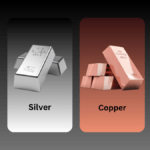
Lokpal’s ₹5 Crore BMW Tender Triggers Storm: Why an Anti-Corruption Body’s Luxury Car Plan Has India Seeing Red
The Lokpal’s ₹5 crore BMW tender has shocked India — the nation’s top anti-corruption body buying luxury German sedans for its members. Critics call it hypocrisy, officials claim transparency. But can integrity ride in a BMW? This explosive debate now questions what “clean governance” truly means in 2025.
When the nation’s top anti-corruption authority floats a tender to buy seven luxury BMW sedans worth ₹5 crore, public outrage is inevitable. In a country where citizens still queue for basic amenities, the Lokpal of India — an institution meant to investigate corruption — has ironically become the subject of one.
The news of the tender for BMW 3 Series 330 Li “M Sport” sedans spread like wildfire, tapping into India’s deepest frustrations over how governance optics can overshadow credibility.
What was meant to be a routine procurement has morphed into one of the most controversial government spending stories of 2025.
From Anna Hazare’s Dream to a BMW Reality
The Lokpal institution was born out of India’s 2011 anti-corruption movement, when lakhs of people rallied behind Anna Hazare’s call for accountability. It was envisioned as a people’s institution — humble, independent, and principled.
Yet, in 2025, that same institution is being criticized for displaying elitism instead of empathy.
Activist Prashant Bhushan didn’t mince words, calling it “a betrayal of the spirit the Lokpal was founded on.” He argued that the Lokpal should have opted for “Made-in-India electric vehicles from Tata or Mahindra”, aligning with both patriotic and planetary goals.
Even former NITI Aayog CEO Amitabh Kant joined the conversation, urging the body to show “smart, sustainable governance.”
Then came the viral tweet that summed up India’s collective frustration:
“An anti-corruption body driving BMWs is like the fire brigade arriving in gasoline trucks.”
The Tender That Shattered Public Trust
According to the Lokpal’s official tender document, seven brand-new BMW 3 Series 330 Li LWB sedans are to be purchased for the chairperson and six members. Each car costs about ₹70 lakh, and the entire purchase will be completed within four weeks of tender finalization.
But the shock factor lies in the details:
- Only white-colored BMW 3 Series 330Li M Sport variants have been specified.
- The tender includes a mandatory 7-day driver training program, covering vehicle systems, safety, and efficiency.
- The vendor must bear all training costs, signaling meticulous planning for premium-level service.
Officials insist that the process is transparent and procedural, but critics see it as tone-deaf and disconnected from ground realities.
“BMW offers an extensive after-sales network and better safety ratings. For official transport of this level, dependability is non-negotiable.”
When Optics Overshadow Intent
The Lokpal was established as India’s ultimate watchdog against corruption, born from the Anna Hazare-led anti-corruption movement. Yet, in 2025, it finds itself facing accusations of poor institutional optics.
Activist Prashant Bhushan posted a searing comment questioning whether the Lokpal should spend crores on imported luxury vehicles instead of opting for “Made in India” EVs like Tata or Mahindra.
Even Congress leaders and former NITI Aayog CEO Amitabh Kant joined the discussion, calling for smart, sustainable alternatives that reflect ethical public spending.
As one viral post summarized:
“An anti-corruption body driving BMWs is like the fire brigade arriving in gasoline trucks.”
The tweet went viral within hours, sparking more than 100K retweets and heated debates across platforms like Reddit, Threads, and X.
“Transparency in process doesn’t equal legitimacy in perception. The Lokpal has done nothing illegal — but everything controversial.”
Public Sentiment: Anger, Disbelief, and Irony
Social media reactions mirror the frustration of India’s middle class, who see the issue as more symbolic than financial.
For many, this procurement isn’t about ₹5 crore — it’s about trust.
- “If Lokpal needs luxury cars to do their job, what message are we sending?” one user wrote.
- Others questioned the moral authority of an institution meant to represent integrity.
- Memes flooded social media comparing the BMW tender with previous scandals in government spending, reigniting debates about bureaucratic privilege.
This growing digital uproar reveals something deeper — the psychological disconnect between governance symbols and citizen expectations.
The Irony of Anti-Corruption in a BMW
The Lokpal Act was envisioned as a people’s institution — accessible, grounded, and accountable. The choice of BMWs, luxury German-engineered vehicles, contrasts sharply with that promise.
Each BMW 330Li M Sport offers advanced features: a long-wheelbase for comfort, high-end interiors, and performance-oriented handling — perfect for corporate executives, not necessarily watchdog officers.
Critics argue that this sends a misaligned message at a time when:
- Government offices are urged to cut costs.
- The Make in India campaign is emphasizing indigenous manufacturing.
- Climate change and sustainability push for EV adoption in official fleets.
Why, then, did the Lokpal not consider Tata Nexon EV, MG ZS EV, or Mahindra XUV400 — all Indian-made and significantly cheaper?
Officials Defend the Move
Lokpal officials have quietly emphasized that the tender follows standard procurement norms and that vehicle safety, reliability, and long-term maintenance were core considerations.
A senior officer argued that BMW offers a comprehensive servicing package, driver safety features, and lower downtime, which can’t be compromised for an office of such stature.
Moreover, the inclusion of driver training in the tender shows intent toward professionalism and safety — a practice seen in high-level departments like the PMO and Supreme Court registries.
However, the public optics remain problematic. As governance expert Rajiv Pandey notes:
“Transparency in process doesn’t equal legitimacy in perception. The issue here isn’t corruption; it’s credibility.”
Political Fallout — The Blame Game Begins
The controversy has quickly spilled into political circles, with Opposition leaders framing it as emblematic of bureaucratic elitism.
Some have demanded that the government intervene and revise the tender toward electric or hybrid alternatives, citing alignment with India’s Net Zero 2070 goal.
Meanwhile, government insiders maintain that such matters fall strictly within Lokpal’s autonomous administrative jurisdiction.
Political analysts predict that the issue will snowball into a parliamentary debate, where opposition parties can capitalize on the symbolism of wasteful spending amid growing inflation, fuel prices, and public discontent.
The Hidden Problems Behind the Tender
Beyond social outrage, the issue exposes three deeper governance challenges:
- Lack of fiscal symbolism: Institutions often prioritize procedural correctness over public perception.
- Disconnection from sustainability goals: Luxury petrol vehicles contradict India’s climate commitments.
- Performance vs. privilege debate: Critics highlight that the Lokpal has made limited progress in flagship cases since its inception.
For instance, as of October 2025, very few high-profile corruption cases have led to conviction or systemic change.
The BMW procurement, therefore, arrives at a time when questions about Lokpal’s effectiveness are already widespread.
A Mirror to Institutional Accountability
Every procurement tells a story — not just about policy, but about the institution’s ethos.
The Lokpal’s BMW choice, whether justified or not, marks a moment of reflection: do our watchdogs represent transparency in letter, or spirit?
The public backlash signals a broader societal demand: accountability must be seen, not just claimed.
Democracy, after all, thrives not only on clean balance sheets but also on clean optics.
What Could Have Been Done Differently?
Experts outline a few smarter, ethically stronger approaches that could have avoided the PR fiasco:
- Choose Indian EVs: Mahindra or Tata EVs could have underscored support for domestic industry.
- Hybrid model adoption: A mix of petrol and electric vehicles could balance performance and perception.
- Public explanation note: Issuing a justification memo could have clarified priorities before the backlash.
- Phased procurement: Begin with pilot units to assess suitability instead of a direct 7-car tender.
Had such measures been taken, the story might have turned into a “Lokpal goes green” headline — instead of “Lokpal goes German.”
Lessons for Institutions from the Lokpal Controversy
The Lokpal BMW tender controversy serves as a real-time case study in public trust management.
- Optics matter as much as legality.
Legal compliance does not guarantee public acceptance in the age of social media. - Leadership must embody values.
Institutions built on morality must demonstrate restraint and purpose in every decision. - Symbolism drives public sentiment.
The choice of vehicles, buildings, or perks often defines how citizens perceive institutional sincerity.
How 2025’s Governance Optics Are Changing
This controversy unfolds in a broader context — India’s citizens are becoming far more vocal about public spending.
From government holiday trips to political events, people demand visible accountability across digital platforms.
The Road Ahead for the Lokpal
In the coming weeks, the Lokpal’s procurement process will undergo administrative scrutiny, even if procedurally sound.
Public trust repair may require visible gestures — like revising the tender, switching to Indian EVs, or issuing a transparency statement.
The bigger challenge, however, is restoring moral authority.
Without it, the Lokpal risks losing not just credibility, but relevance.
Key Takeaways
- The Lokpal of India floated a tender for seven BMW 3 Series 330 Li M Sport sedans worth ₹5 crore.
- The decision triggered massive outrage across political and social platforms.
- Critics question the appropriateness, optics, and message of luxury procurement by an anti-corruption body.
- Activists called for Make-in-India EV alternatives to promote sustainability and symbolism.
- Officials defended the tender as transparent and procedural.
- The controversy reflects a larger governance challenge — balancing legality with ethical perception.
Final Thought
In a country where symbolism often speaks louder than statutes, the Lokpal’s BMW move is more than a procurement — it’s a mirror held up to India’s governance psyche. Can an institution fight corruption while riding in luxury? Or does integrity demand visible restraint?
The next few weeks will reveal whether the Lokpal doubles down or bends to public sentiment. But one thing is certain: citizens are watching more closely than ever before. As India transitions into a decade of digital vigilance, every rupee spent by a public body tells a story — and in this case, it’s one that might drive much further than seven German sedans.
Will this backlash prompt a rethink on public-sector luxury? Or will it fade, like many controversies before it? The answer may define how India measures integrity in 2025.
Disclaimer: The use of any third-party business logos in this content is for informational purposes only and does not imply endorsement or affiliation. All logos are the property of their respective owners, and their use complies with fair use guidelines. For official information, refer to the respective company’s website.





























